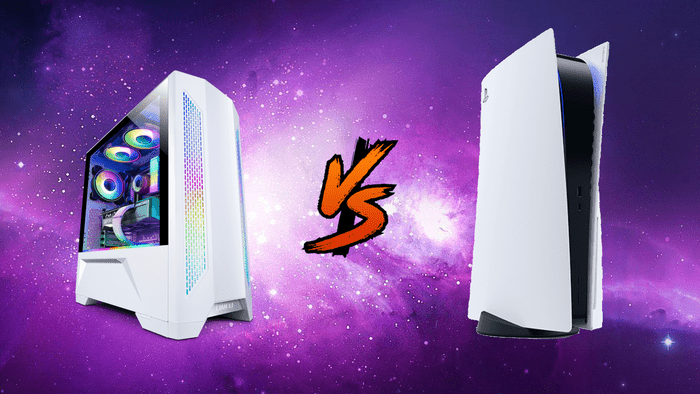Esports vs. Gaming – Main Differences & Options For Real Money Players
Although these two terms are often used interchangeably, they actually refer to distinct activities. Both entail playing video games, but there are essential distinctions between the two. Throughout this article, we’ll delve into the primary differences between esports and gaming, while also exploring the options open to real-money players.
Whether you’re a seasoned gamer or new to the scene, this comprehensive guide will equip you with all the essential information about these two worlds. Let’s jump right in!
What is Esport – Evolution of Esports Over the Years
Competitive video gaming, commonly referred to as Esports or electronic sports, has gained massive popularity in recent years. Esports, distinct from traditional gaming pursued for leisure, centers around professional players engaged in competitive tournaments for substantial cash rewards.

Professional esports players are often likened to athletes due to their need for peak physical fitness and mental acuity to excel in their performances.
Esports finds its roots in the early era of video gaming, with players challenging each other in arcade classics like Space Invaders and Pac-Man. As gaming evolved and shifted to home consoles like the Atari 2600 and Nintendo Entertainment System (NES), informal competitions emerged among friends and family.
In 1972, the seminal moment for esports unfolded at Stanford University, hosting the first-ever organized tournament for the game Spacewar. Since then, esports has surged into a global phenomenon, attracting millions of fans who eagerly watch professional players compete in titles like League of Legends, Dota 2, and Overwatch.
Different Types of Esports
There are several different types of esports games, each with its own unique characteristics and gameplay mechanics. Some of the most popular types of esports include MOBAs, FPS, and RTS games.
MOBAs
Multiplayer Online Battle Arenas, reign as one of the most favored esports genres. In these games, two teams compete to obliterate each other’s bases while safeguarding their own. Players control a unique character or hero, utilizing their special abilities and skills to conquer opponents.
FPS
Another highly sought-after category is FPS, First-Person Shooter games. Here, players engage in fast-paced combat, employing a range of weapons and tactics. The first-person perspective imbues the gaming experience with a sense of immersion and realism.
RTS
Real-Time Strategy games, challenge players to manage resources and construct armies in real-time. Strategic decisions on resource allocation and troop deployment are critical for triumphing over opponents.
Advantages of Playing Esports
- Skill Development: Esports enhances reflexes, coordination, and strategic thinking, promoting cognitive growth.
- Teamwork: Team-based games encourage effective communication and collaboration skills.
- Healthy Competition: Esports cultivates a positive competitive spirit, driving self-improvement.
- Professional Opportunities: Exceptional players may access professional teams, sponsorships, and tournaments.
- Content Creation: Showcase talent through streaming and content creation, building a dedicated fan base.
- Global Reach: Esports connects players with a diverse global audience, promoting cultural awareness.
What is Gaming?
Gaming refers to playing video games for fun or entertainment. It is a broad term that encompasses a wide range of activities, from casual mobile games to immersive console experiences. You can play solo or with friends, and it is often used as a way to relax and unwind after a long day.
Esports vs Gaming – Key Differences
Esports and gaming are not quite the same thing. While both involve playing video games, there are some key differences between the two.
Prize Money
Esports leagues and tournaments give you the opportunity to bag real prize money. The largest esports tournament in the world, The International Dota 2 Championship, had a prize pool of over $40 million in 2021.

Today, online casinos are hugely popular among real money players, thanks to the attractive prize money they offer. Off late, a growing number of casinos have started moving towards competitive online gaming as well.
Note: If you’re looking for a reliable platform and legal sites to play online casino games in the US, you might want to check out uscasinopro.com
Skill Level
A key distinction between esports and gaming lies in the level of skill demanded to compete at a professional level. While video games are accessible to anyone, becoming a professional esports player necessitates years of dedicated practice.
You need to have lightning-fast reflexes, impeccable hand-eye coordination, and the capability to think strategically under pressure.
Competition
While traditional gaming is typically played for casual entertainment, esports involves high-stakes competition between professional players. Esports tournaments and leagues offer large cash prizes to winners, with some tournaments offering prize pools of over $10 million.
In short, While both gaming and esports involve playing video games, esports requires a higher level of skill, dedication, and strategic thinking to excel on the competitive stage, whereas gaming embraces a broader range of players with varying skill levels and objectives.
The Bottom Line
For real-money players, the choice between esports and gaming depends on their skills, interests, and goals. Esports offers the potential for massive earnings, but it requires a substantial time commitment and a highly competitive spirit.
Gaming, on the other hand, provides more flexibility and diverse avenues for monetization. As the gaming industry continues to grow and evolve, real money players will find exciting possibilities awaiting them in both esports and gaming landscapes.






